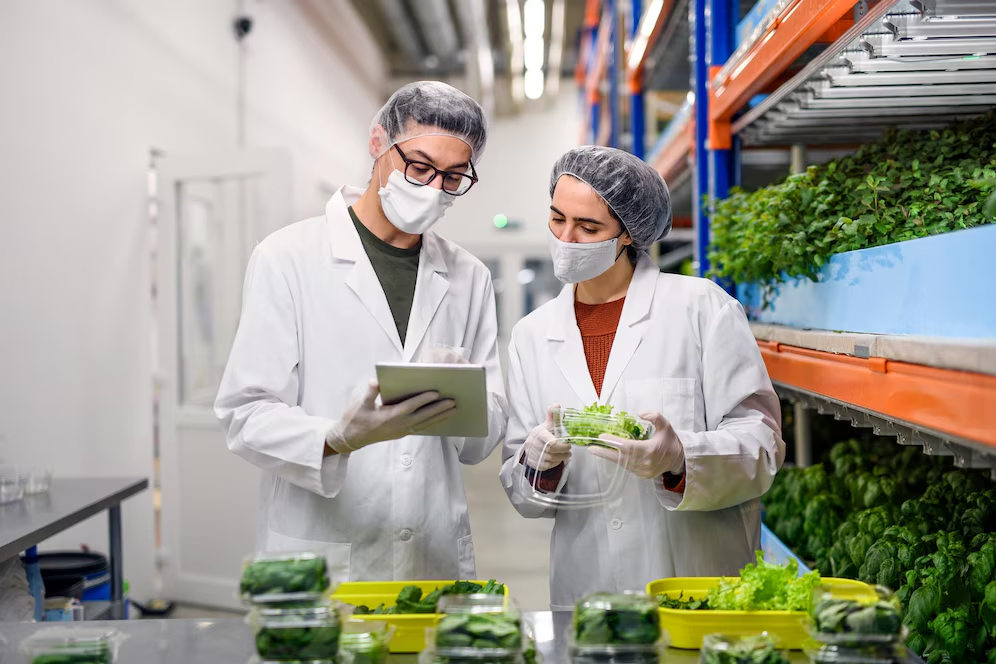How Food Safety Software Solutions Help Meet Australian Compliance Standards
In an age where food safety is paramount, the importance of adhering to compliance standards cannot be overstated. In Australia, food businesses are required to maintain high levels of hygiene and safety to protect public health. Food safety software solutions have emerged as essential tools for businesses striving to meet these rigorous standards. This article explores how these software solutions facilitate compliance and enhance overall food safety management.
The Importance of Food Safety Compliance in Australia
Food safety compliance is not merely a legal obligation; it is a fundamental aspect of public health. In Australia, the food industry is governed by strict regulations set forth by the Food Standards Australia New Zealand (FSANZ) and various state and territory health departments. These regulations are designed to ensure that food is safe for consumption and that businesses operate within the law.
Non-compliance can lead to severe consequences, including hefty fines, legal action, and damage to a company’s reputation. Therefore, understanding and implementing compliance standards is crucial for any food safety software solutions business, from small cafes to large manufacturing plants.
Understanding Compliance Standards
Compliance standards in Australia encompass a wide range of requirements, including food handling practices, hygiene protocols, and record-keeping. The Australian New Zealand Food Standards Code outlines specific guidelines that businesses must follow, such as maintaining proper food temperatures, ensuring cleanliness, and conducting regular staff training.
Moreover, local councils often have additional regulations that must be adhered to, making it essential for businesses to stay informed about both national and local requirements. Failure to comply can not only jeopardise public health but also lead to operational disruptions. For instance, a single incident of foodborne illness linked to a restaurant can result in a significant loss of customer trust, leading to a decline in patronage that may take months or even years to recover from. Furthermore, the impact of non-compliance can extend beyond the immediate financial repercussions, as it may also affect suppliers and partners who rely on the integrity of the food chain.
In addition to the legal ramifications, food safety compliance plays a vital role in fostering a culture of safety and responsibility within the workplace. Training staff in proper food handling techniques not only minimises the risk of contamination but also empowers employees to take ownership of their roles in maintaining food safety. This proactive approach can enhance employee morale and contribute to a more positive working environment, ultimately benefiting the overall success of the business. Regular audits and self-assessments are also beneficial practices that can help identify potential areas for improvement, ensuring that food safety remains a top priority in the ever-evolving landscape of the food industry.
How Food Safety Software Solutions Streamline Compliance
Food safety software solutions offer a comprehensive approach to managing compliance. By automating various processes, these tools help businesses maintain high standards of food safety while simplifying the compliance journey. Here are several ways in which they contribute to meeting Australian compliance standards:
Real-Time Monitoring and Reporting
One of the standout features of food safety software is its ability to provide real-time monitoring of critical control points (CCPs). This includes temperature monitoring, humidity levels, and other essential factors that influence food safety. By using IoT devices, businesses can receive instant alerts if any parameters fall outside the acceptable range.
Additionally, these software solutions often come equipped with reporting functionalities that allow businesses to generate compliance reports effortlessly. This not only saves time but also ensures that all necessary documentation is readily available for inspections by regulatory authorities.
Streamlined Training and Documentation
Training staff on food safety practices is vital for compliance, and food safety software can facilitate this process. Many solutions offer training modules that can be accessed online, ensuring that all employees are up to date with the latest practices and regulations. This is particularly beneficial for businesses with high staff turnover, as new employees can quickly get up to speed.
Moreover, the software can maintain records of training sessions, certifications, and employee performance, which can be invaluable during compliance audits. This level of documentation not only aids in compliance but also fosters a culture of accountability and safety within the organisation.

Enhancing Traceability and Accountability
Traceability is a critical component of food safety compliance. In the event of a food safety incident, businesses must be able to trace the source of the problem quickly. Food safety software solutions enhance traceability by allowing businesses to track ingredients from suppliers through to the final product.
Supplier Management
Food safety software often includes features for managing supplier information, including their compliance status and certifications. This allows businesses to ensure that they are sourcing ingredients from reputable suppliers who adhere to food safety standards. By maintaining a database of supplier information, companies can easily verify compliance and make informed decisions about their sourcing practices.
Product Recall Management
In the unfortunate event of a product recall, having a robust traceability system in place can significantly reduce the potential impact on public health and the business’s reputation. Food safety software can streamline the recall process by identifying affected products and facilitating communication with customers and regulatory authorities.
This proactive approach not only helps in managing the immediate crisis but also demonstrates a commitment to food safety, which can enhance customer trust and loyalty in the long run.
See Also : The Role of Food Safety Compliance Software in HACCP Certification
Cost-Effectiveness and Efficiency
Investing in food safety software solutions may seem like an additional expense, but the long-term benefits far outweigh the costs. By automating processes and reducing the likelihood of compliance failures, businesses can save money in the long run. Here’s how:
Reducing Human Error
Manual processes are often prone to errors, which can lead to compliance breaches. Food safety software minimises human error by automating data entry, monitoring, and reporting. This not only ensures accuracy but also frees up staff to focus on other critical aspects of the business.
Improving Operational Efficiency
With streamlined processes, businesses can operate more efficiently. Food safety software can integrate with existing systems, allowing for seamless data flow and reducing the time spent on administrative tasks. This increased efficiency can lead to improved productivity and ultimately higher profit margins.
Choosing the Right Food Safety Software Solution
With numerous options available in the market, selecting the right food safety software solution can be daunting. Here are some key factors to consider when making a choice:
User-Friendly Interface
A user-friendly interface is crucial for ensuring that all staff can easily navigate the software. Complicated systems can lead to frustration and decreased compliance. Look for solutions that offer intuitive designs and easy access to training resources.
Customisation Options
Every food business is unique, and the software should be able to accommodate specific needs. Whether it’s custom reporting features or tailored training modules, ensure that the solution can be adapted to fit the unique requirements of the business. You may like to visit https://business.gov.au/events-and-training/how-to-start-a-food-business to get how to start food businsess.
Customer Support and Training
Reliable customer support is essential for any software solution. Ensure that the provider offers comprehensive training and ongoing support to help staff troubleshoot any issues that may arise. This support can be invaluable, especially during the initial implementation phase.
The Future of Food Safety Compliance in Australia
As technology continues to evolve, the future of food safety compliance in Australia looks promising. Food safety software solutions are likely to become even more sophisticated, incorporating advanced analytics and artificial intelligence to predict potential compliance issues before they arise.
Embracing Innovation
Businesses that embrace these innovations will not only improve their compliance efforts but also enhance their overall operational efficiency. The integration of AI and machine learning can provide deeper insights into food safety practices, enabling businesses to make data-driven decisions that enhance safety and compliance.

Building a Culture of Safety
Ultimately, the goal of food safety software solutions is to foster a culture of safety within the organisation. By prioritising compliance and food safety, businesses can protect their customers, uphold their reputation, and contribute positively to public health.
Conclusion
Food safety software solutions are indispensable tools for businesses striving to meet Australian compliance standards. Through real-time monitoring, streamlined training, enhanced traceability, and cost-effective operations, these solutions empower food businesses to maintain high safety standards while ensuring compliance with regulations. As the food industry continues to evolve, embracing technology will be crucial for those looking to stay ahead in the competitive landscape. By investing in food safety software, businesses can not only safeguard public health but also secure their future in the industry.


